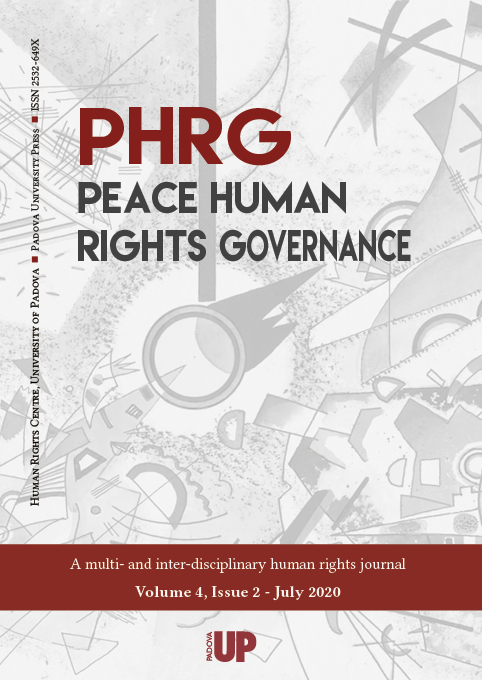Raccolte

The Third Universal Periodic Review of Italy between Recurring Trends and New Challenges
Pietro de Perini, Andrea Cofelice (2020)
- Sito internet
- Peace Human Rights Governance 4(2)
- Tipologia pubblicazione
- Articolo / Saggio
- Pagine
- 249-277
- Lingua
- EN
Drawing from the outcomes of the third Universal Periodic Review of Italy before the UN Human Rights Council (November 2019), this paper aims to take stock of the lights and shadows characterising the overall country’s human rights performance. The analysis compares and discusses the recommendations received by Italy in the third cycle with those emerged in the first two UPR (2010 and 2014) and the country’s policy-makers discourse and action surrounding the reception and response to these recommendations. Accordingly, the paper aims to a) understand if and to what extent Italy’s many lacunae identified in the review of November 2019 represent new human rights challenges for the country to address; b) evaluate the overlapping between the national and international human rights agenda; and c) c) assess the impact (if any) of the ‘populist turn’ in the country’s leadership between 2018 and 2019 on its international perception and reputation.

